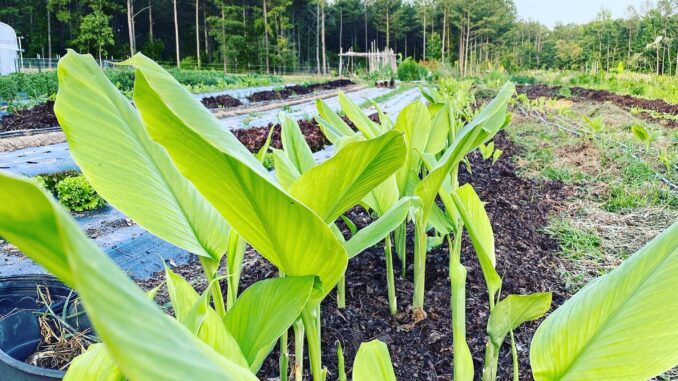

RALEIGH — Wake County Commissioners have protected 112 acres of area forests and farmland from development by unanimously approving $400,000 in funding for a conservation easement.
“This amount and the dedication of the rollback tax by Wake County is the largest single county dedication of funds for farmland protection in North Carolina and one of the largest in the country,” according to the county’s press release.
The action and its funding is part of the county’s Farmland Preservation Program as well as the result of a partnership of multiple organizations including Triangle Land Conservancy, which will hold and monitor the easement, as well as funding contributions by the U.S. Department of Agriculture’s Natural Resource Conservation Service and North Carolina’s Agricultural Development and Farmland Preservation Trust Fund.
“We are losing precious farmland at an alarming rate in Wake County, so this agreement for the Oaky Grove property marks a significant victory for conservation efforts, assuring that this historic property remains farm and open space for perpetuity,” Wake County Commissioner Donald Mail said in a press release. “This partnership will conserve prime farmland soils, as well as protect wildlife habitat and water quality in the critical natural area around Mark’s Creek. We can’t thank the Browns enough for leading the way in this new initiative.”
Some of the acreage being preserved involves the Oaky Grove Farm in eastern Wake County which is owned by Carol and Talmage Brown. The Browns are restoring the property which is listed on the National Registry of Historic Places.
Per the press statement, the Brown’s farm dates back to 1798 and Talmage Brown’s great, great, great grandfather, Thomas Price, purchased an “estimated 353 acres for 400 pounds.” Price died in 1830 and at that time the farm was now a plantation spanning “over 4,500 acres, five grist mills, a plantation home built in the 1800s and a store.”
“Preserving this land and ensuring its continuity for future generations fills me with gratitude,” said Talmage Brown, a retired NC State professor of veterinary medicine. “It feels like the purpose of a lifetime, a commitment to our community and the forthcoming generations that will cherish the beauty of this land and cultivate it for years to come.”
“A recent report by the American Farmland Trust projects that North Carolina may lose up to 1.1 million acres of agricultural land by 2040, which places it 2nd in the entire United States in potential agricultural land lost to development,” Director of Land Protection and Stewardship (East) at Triangle Land Conservancy Leigh Ann Hammerbacher said.
Hammerbacher added that Wake County ranks 32nd in the nation for potential farmland loss over the next 20 years.
The move by Wake County officials follows the announcement earlier this year in May of the “NC Forever Farms Program” by the Farmland Preservation Division of the North Carolina Department of Agriculture and Consumer Services (NCDA&CS).
Preserving family farms in North Carolina has been a longtime top priority of Agriculture Commissioner Steve Troxler.
“We continue to sound the alarm about the ever-increasing loss of farmland in North Carolina and I am proud that message is resulting in action in terms of conservation easements like this one with Oaky Grove Farm and greater awareness of this major issue,” Troxler said in an emailed statement to North State Journal.
“We are happy to be a partner on this significant project with Wake County and USDA. I am encouraged by this model that Wake County is using that funnels taxes paid when farms are converted from farm use and sold for development into funds for farmland preservation,” said Troxler. “This is an innovative and visionary approach to protecting farmland for future generations.”



